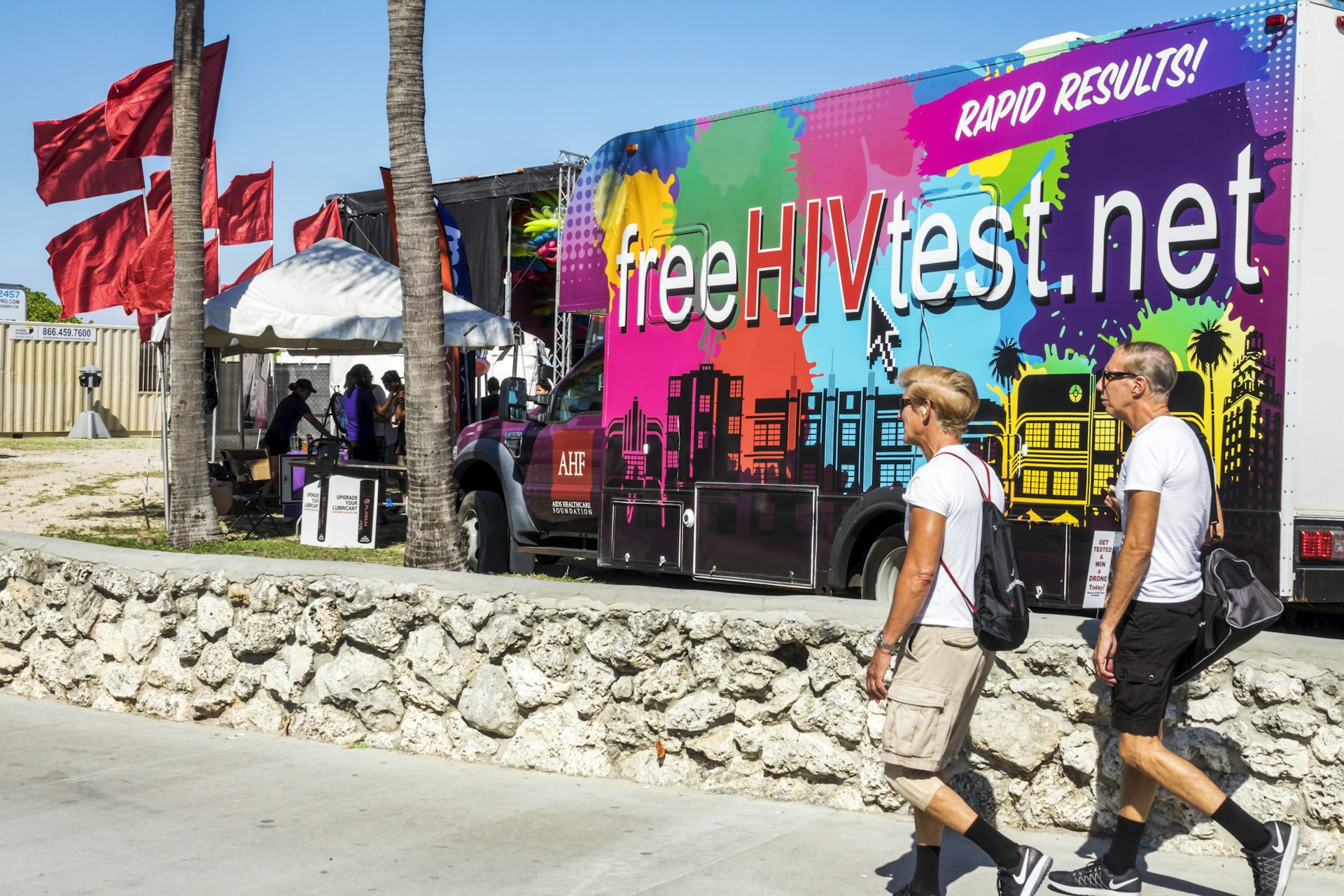Florida is home to about 341,000 immigrants from Venezuela and Haiti who may soon lose residency, wo
The loss of TPS doesn’t necessarily mean all of these people will immediately leave the country. Some will seek legal or illegal means to stay.

Florida leads the nation in the number of immigrants with Temporary Protected Status, or TPS.
Soon after taking office, the Trump administration moved to scale back protections for the largest groups of these immigrants – those from Haiti and Venezuela.
TPS applies to immigrants from designated countries that the Department of Homeland Security considers dangerous due to armed conflicts, environmental disasters, epidemics or other conditions. There are currently 17 countries on the list. The most recent country added was Lebanon on Oct. 16, 2024.
According to a federal report published in December 2024, nearly a third of the roughly 1.1 million TPS recipients live in Florida. Of those, 59% are Venezuelan and 35% are Haitian, with the other 6% coming from other TPS nations.
I’m a professor of investigative journalism at Florida International University in Miami. For the past 24 years, I’ve worked with students to report how various waves of immigrants have integrated into Florida, and also on the impact of historical immigration crackdowns on the state’s workforce.
Because so many TPS recipients live here, ending TPS may affect Florida more than any other state – but it is still hard to say if and when that will happen.
Uncertain TPS expiration dates
Temporary Protected Status allows beneficiaries to stay and work in the U.S. for a designated period, typically ranging from six to 18 months. This time period can be extended if conditions in the affected country remain unstable. It does not provide a permanent legal pathway to stay in the United States.
President Joe Biden’s administration created two TPS designations for Venezuelans – one in 2021 and a second in 2023.
In early February 2025, Trump’s Homeland Security director, Kristi Noem, rolled back extensions of TPS for Venezuelans that the outgoing Biden administration had issued on Jan. 17, 2025. Then, two days later, she issued a termination notice that canceled TPS for 2023 Venezuelan recipients altogether.
Noem’s orders meant that almost 250,000 Venezuelans covered by the 2023 designation were expected to lose their residence and work permits on April 7, 2025. Another 256,000 Venezuelans who requested their TPS under the earlier designation were expected to lose their protections on Sept. 10, 2025.
But Venezuelans got some breathing room on March 31, when U.S. District Judge Edward Chen blocked the change in their immigration status, writing that Noem’s decision “smacks of racism.” As a result, they will keep their TPS protections while the case moves through the courts.
Noem has said that having Venezuelans in the country “is contrary to the national interest” and accused them without proof of gang affiliations.
The judge’s ruling doesn’t affect the more than 520,000 Haitian immigrants nationwide expected to lose their TPS protection on Aug. 3, 2025.
The expiration of TPS potentially affects 341,000 immigrants in Florida. But it doesn’t mean all of these people will leave the country. TPS rules allow immigrants to apply for a change of immigration status, and some will apply for asylum or student visas. Others will go underground.
Local economic effects
These policies won’t just affect Venezuelan and Haitian TPS holders personally. It will likely cause some big waves in the Florida economy.
The non-profit American Immigration Council, an immigrant advocacy group, estimates that 95% of TPS holders in Florida age 16 and older are currently employed.
They paid approximately US$485.9 million in local and Florida state taxes, according to the same report.
Although the public often associates immigrants with work in the construction, agricultural and meatpacking industries, most are employed in education and health care.
Fewer home health aides
Immigrants account for 64% of all home health aides in Florida, according to the American Immigration Council.
Nationwide, 1 in 4 direct care workers are immigrants, according to a policy brief from PHI, an advocacy group for elder care and disability service workers.
Not all of these workers are TPS holders, but an estimated 7% of foreign-born caregivers are from Haiti. Additionally, the research from PHI suggests that the actual percentage of home health aides who are immigrants is likely higher, as many immigrant workers in this sector operate in the “gray market.” These workers receive direct payment from the people they work for, which makes their employment hard to track.
PHI projects that the long-term care sector in the U.S. will need to fill 9.3 million new direct care job openings by 2031 due to the country’s aging population.
School staff a concern
The public school system is another area where the sudden loss of TPS recipients will likely be deeply felt.
Miami-Dade County Public Schools, the third-largest school district in the country, is experiencing an ongoing shortage of teachers and staff. The district had nearly 700 education and support positions unfilled in August 2024, according to a district-by-district count done by the Florida Education Association.
“It is not only teachers,” an administrator told me in March 2025, explaining that the vacancies are also among registrars, custodians, paraprofessionals and other roles. These “high stakes” education jobs, as he described them to me, are difficult for Miami-Dade County schools to fill.
The Miami-Dade school district doesn’t report on the nationality of its employees – or their immigration status. But unfilled positions in the school district dropped after an influx of Venezuelans and Haitians in 2019, the administrator told me.
Losing these workers would likely mean South Florida’s persistent education and home health care labor shortages would worsen – making it increasingly difficult for families with school-age children, the elderly and individuals with special needs to access affordable essential services.
Mercedes Vigon does not work for, consult, own shares in or receive funding from any company or organization that would benefit from this article, and has disclosed no relevant affiliations beyond their academic appointment.
Read These Next
Why ICE’s body camera policies make the videos unlikely to improve accountability and transparency
For body cameras to function as transparency tools, wrongdoing would have to be consistently penalized,…
When civil rights protesters are killed, some deaths – generally those of white people – resonate mo
From the civil rights era of the 1960s until today, white victims of government violence have received…
Supreme Court’s Michigan pipeline case is about Native rights and fossil fuels, not just technical l
The issue in front of the US Supreme Court is seemingly mundane, about federal or state jurisdiction.…






